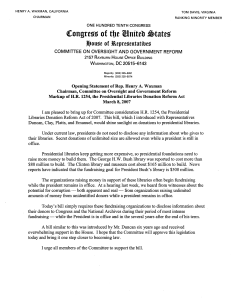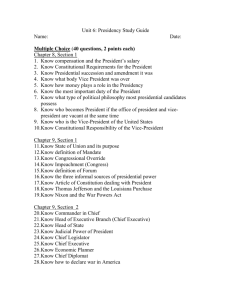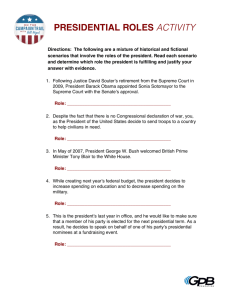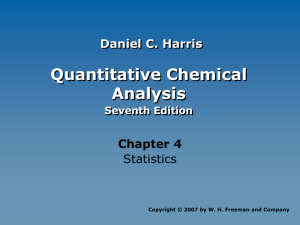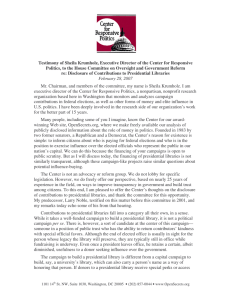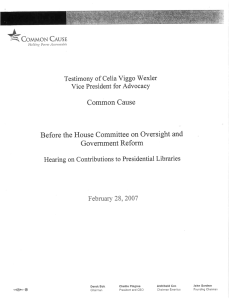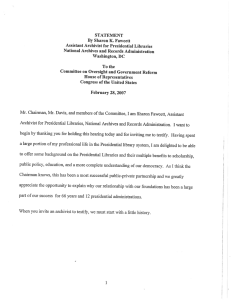Rouse %epre$entatibe$ o f RAYBURN
advertisement
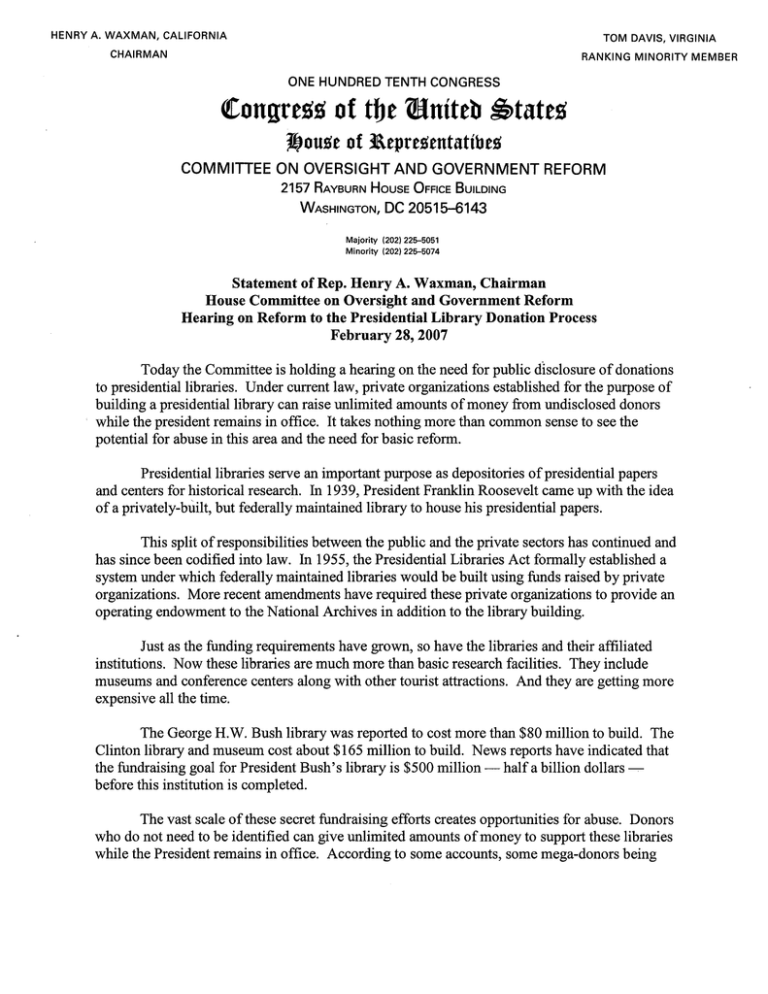
HENRY A. WAXMAN, CALIFORNIA TOM DAVIS, VIRGINIA CHAIRMAN RANKING MINORITY MEMBER ONE HUNDRED TENTH CONGRESS Rouse of %epre$entatibe$ COMMllTEE ON OVERSIGHT AND GOVERNMENT REFORM 2157 RAYBURNHOUSE OFFICE BUILDING WASHINGTON, DC 20515-6143 Majority (202) 225-5051 Minority (202) 225-5074 Statement of Rep. Henry A. Waxman, Chairman House Committee on Oversight and Government Reform Hearing on Reform to the Presidential Library Donation Process February 28,2007 Today the Committee is holding a hearing on the need for public disclosure of donations to presidential libraries. Under current law, private organizations established for the purpose of building a presidential library can raise unlimited amounts of money from undisclosed donors while the president remains in office. It takes nothing more than common sense to see the potential for abuse in this area and the need for basic reform. Presidential libraries serve an important purpose as depositories of presidential papers and centers for historical research. In 1939, President Franklin Roosevelt came up with the idea of a privately-built, but federally maintained library to house his presidential papers. This split of responsibilities between the public and the private sectors has continued and has since been codified into law. In 1955, the Presidential Libraries Act formally established a system under which federally maintained libraries would be built using funds raised by private organizations. More recent amendments have required these private organizations to provide an operating endowment to the National Archives in addition to the library building. Just as the funding requirements have grown, so have the libraries and their affiliated institutions. Now these libraries are much more than basic research facilities. They include museums and conference centers along with other tourist attractions. And they are getting more expensive all the time. The George H.W. Bush library was reported to cost more than $80 million to build. The Clinton library and museum cost about $165 million to build. News reports have indicated that the fundraising goal for President Bush's library is $500 million -half a billion dollars before this institution is completed. The vast scale of these secret fundraising efforts creates opportunities for abuse. Donors who do not need to be identified can give unlimited amounts of money to support these libraries while the President remains in office. According to some accounts, some mega-donors being courted to fund the Bush library are expected to contribute $10 to $20 million each. And they may make these contributions while there are nearly two years left in President Bush's term. Later this week, Rep. Duncan and I will be introducing legislation to reform this system. This legislation would require that presidential libraries disclose the identity of their donors to Congress and the National Archives during their period of most intense fundraising, which is while the President is in office and in the several years after the end of his term. I expect the Committee to consider this legislation next week. This legislation is one part of a larger effort by this Committee to restore honesty and accountability in the federal government. In fact, the Committee will soon be considering two additional open government bills: one to improve access to presidential records and one to strengthen the Freedom of Information Act. As we will learn at today's hearing and when we mark up the open government legislation, these bills are bipartisan initiatives with broad public support.
